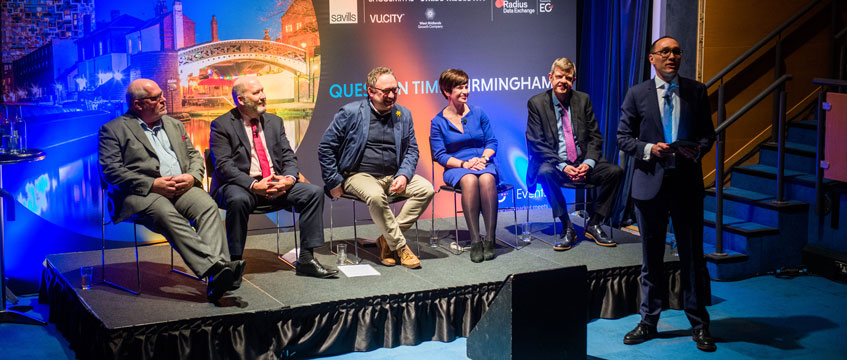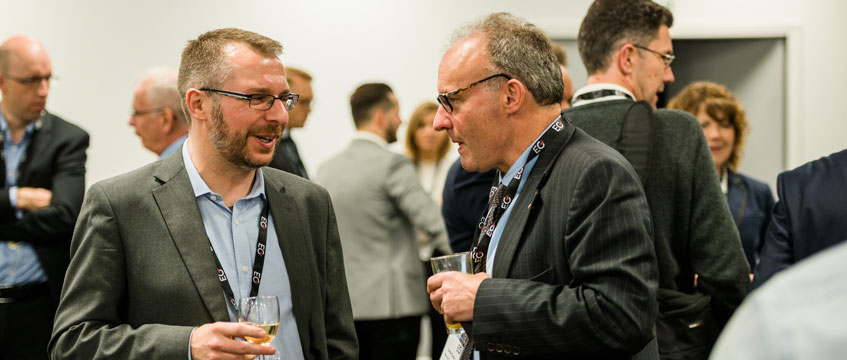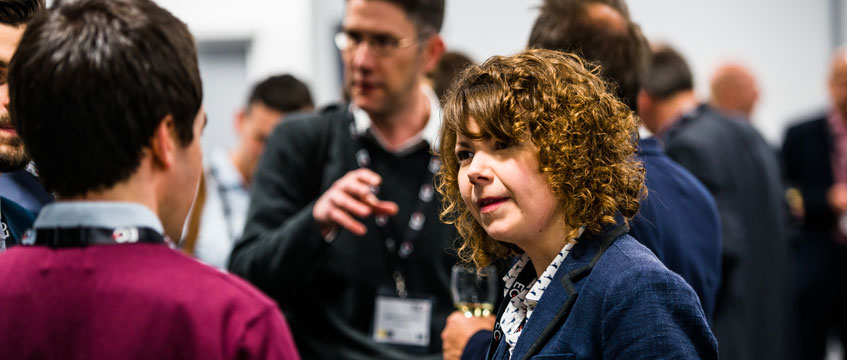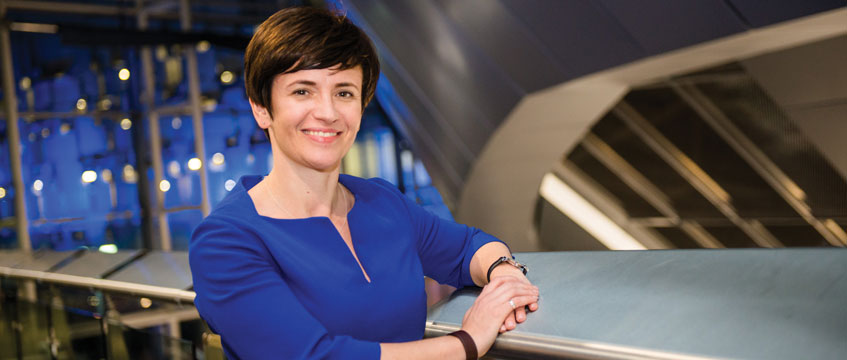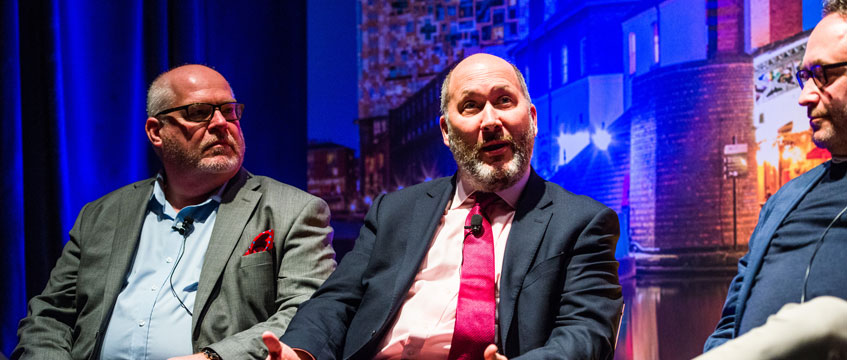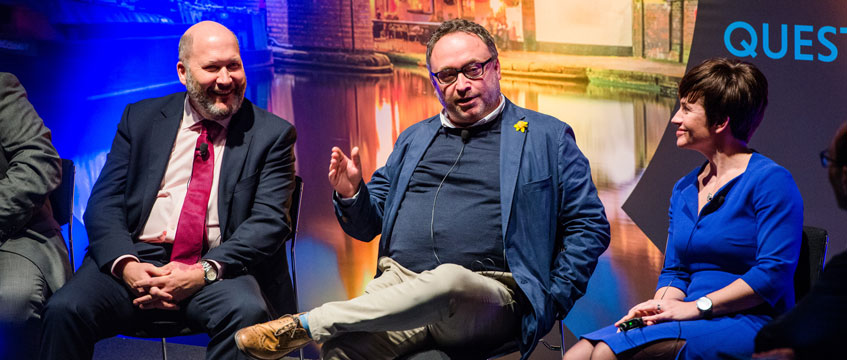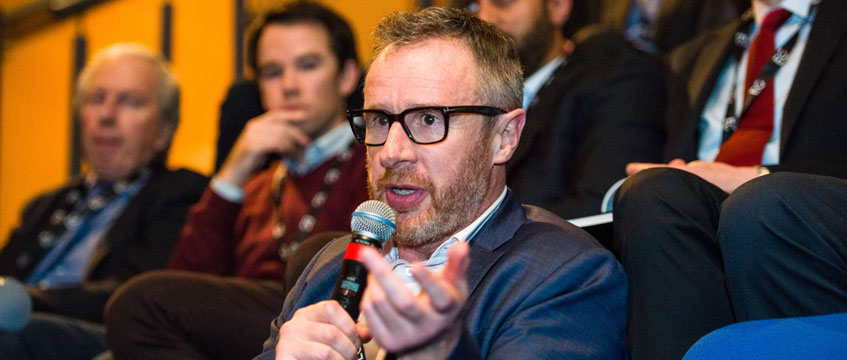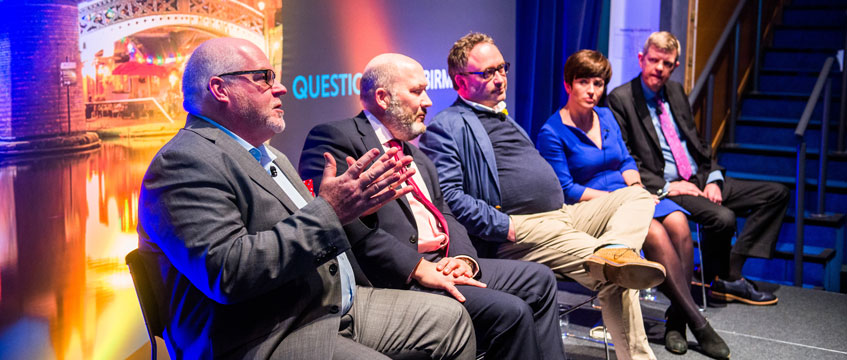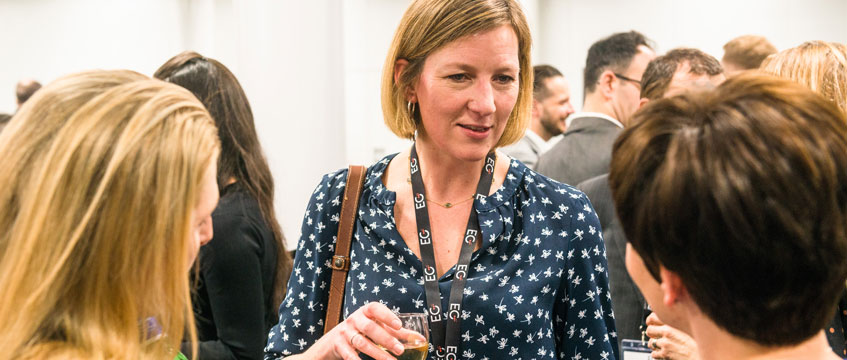Panellists at EG’s Question Time event in Birmingham applauded the huge development pipeline in the city, but said a lack of connectivity continued to constrain growth in the city.
The Midlands has £11bn in development investment opportunities. A huge amount of this is in Birmingham city centre, with a bulging pipeline of office and residential developments, and hundreds of acres of regeneration at sites such as Smithfield, Curzon Street and Ladywood.
Infrastructure and transport improvements – the ring road, the metro and HS2 – are connecting these hubs, but local players say this progress is long overdue and much more is needed.
“Public realm-wise, we are not very good at joining up the bits and pieces,” said Ian Tipton, regional director for the Midlands and Birmingham at Stride Treglown. “We are great at doing individual projects, but joining up the pieces has suffered over the years.”
“Birmingham has always suffered from that concrete collar of roads that divides it,” added Tim Willis, planning and environment partner at Shoosmiths. But this is changing, he argued. Development at Paradise will connect the core city centre business district of Colmore Row with Brindleyplace, and suburban safe haven the Jewellery Quarter.
“You’ve got the combined authority, Midlands Connect. They are trying their best to make HS2 connect to other places, as quickly as they can,” Willis said.
Barriers to connectivity
The event was held at Millennium Point, on the border of HS2’s proposed 370-acre Curzon Street Station regeneration, and walking distance from three operational railway stations in the city centre.
“For a long time people just assumed we were too far out of the city,” said Abbie Vlahakis, acting chief executive of Millennium Point. “We are about five minutes’ walk from New Street Station — but it’s that perception, and we have suffered from that.”
The solution? Communication, education, and tramlines. The £1bn extension of the West Midlands Metro will see the city line stretch up to Curzon Street by 2023. It follows £750m of investment in Birmingham’s New Street Station, with the £56bn HS2 arrival expected at Curzon Street in 2026.
Tipton added: “For so long Digbeth has sat alone, waiting to be primed. I think Curzon Street will go a long way to nudge that along.”
He said current transport capacity was at breaking point. “HS2 is nothing to do with time and shortening of the distances, it’s about the capacity. The one thing Grand Central didn’t do was increase the capacity in central Birmingham. It’s still that bottleneck that squeezes the life out of that connection between the North and the South.”
But Willis warned that HS2 was a double-edged sword. “Good HS2 drives development and investment; bad HS2 actually stifles and sterilises land for years because of the safeguarding zones,” he said.
“There needs to be more communication between the secretary of state for transport and other ministers, particularly on housing. It’s stopping housing being built on a perfectly acceptable site. HS2 should be driving development, not stopping it.”
Digital infrastructure
Connecting the city doesn’t just mean clearing congestion and joining up these new hubs. Digital infrastructure that enables high-speed internet connections is vital to attract and retain occupiers.
Tipton pointed to strengths in free Wi-Fi hotspots and the large-scale 5G testbed, but added: “It’s really early days. We’ve got to grasp it by the horns and just drag it. It’s probably going to be the single most important thing for the city.”
Bruntwood has formed a £1.8bn joint venture with Legal & General Capital to target science and technology occupiers in the North West and the Midlands. Rob Valentine, the company’s head of Birmingham, said: “Is the digital infrastructure in the city up to scratch? The simple answer is no.
“If you look at the central core of Birmingham’s Colmore business district, there’s a large number of buildings that still have a copper connection. They don’t have a proper Wi-Fi connection.”
This means slower internet speeds, which will limit businesses. However, Valentine said, the 5G testbed is a “game changer”.
He added: “That’s why we are putting investment into Innovation Birmingham [Digital Campus]. That will be such a driver in terms of developing those new technologies for the city region, and no other city in the UK has that.”
Birmingham consistently tops the charts for the highest number of start-up businesses outside the capital. In 2018, some 18,590 new companies launched in Birmingham, according to think-tank the Centre for Entrepreneurs. This is an increase of 42% from the previous year and double the number of start-ups in Manchester.
“There are a lot of incubation spaces in the Birmingham area, and Birmingham city is really set up to support tech companies,” added Vlahakis. “We have a culture of businesses that want to grow and a culture of start-ups.”
‘The opportunity for local talent is massive’
Enabling local talent and SMEs were two big themes at EG’s first Question Time of the year at Birmingham’s Millennium Point.
“The opportunities out there and the diversity – particularly in a place such as the Midlands – is absolutely massive,” said John Griffiths, head of development at Savills.
Diversity is on Savills’ agenda, and Griffiths said its apprenticeship programme had been “a real eye-opener”, attracting young people from a range of backgrounds into the business.
“The one thing that the city has to keep working on is investing in education across all communities,” Griffiths said, adding that development across the city was a big opportunity for young people. “We mustn’t let that fall under the radar at any point.”
“For us to widen and become successful we need views from all parts of society. That balance has to change,” said Millennium Point’s Vlahakis. “There is no point in speaking to schoolchildren at 15 or 16 [years of age]. We have started going into primary schools.”
The charity focuses on helping young people into STEM careers. This includes a focus on engineering, property and construction.
Vlahakis added: “For either the unskilled or the children coming through, if we really embraced HS2 and the supply chain we could get a really skilled workforce in the Midlands.”
Birmingham is set on developing this workforce and increasing productivity, and this also means supporting local enterprise.
SME opportunities
“Not everything can go to the big boys, whatever any of us are doing,” said Stride Treglown’s Tipton. “How do you do it? I honestly don’t know.”
He added that the public tendering process for development contracts was flawed, favouring money over quality, and that ensuring local enterprise succeeded was “a real holy grail”.
“It’s so fundamental to the nature of how Birmingham works as a city. The whole premise behind Birmingham is it’s an innovative, creative city,” he said
Jonathan Bretherton, managing director at the Urban Growth Company, said: “The EU rules on public procurement are very constraining. It means SMEs tend to miss out against the giants of development.
“A lot of it is self-selection by the large contractors who have bidding machines or are good at winning these contracts, whereas the SMEs either can’t afford to employ someone to do it or haven’t got the training and skills in their organisation, even though they can deliver.”
Bretherton said public bodies such as UGC and HS2 should improve their communication and meet more contractors, and added that changes to procurement after Brexit may make this easier.
“We use a lot of local companies,” said Vlahakis. “We look at them in a different way in terms of how we use them and how we structure contracts. We encourage the small ones and we develop contracts with them to protect ourselves, but we also give them those opportunities.”
Griffiths added that Birmingham City Council also held events for local contractors. “There’s the chance to connect those potential suppliers with those looking to make appointments,” he said. “That’s a real thing that happens on a regular basis.”
Images © Ed Shaw
The panel
- Jonathan Bretherton, managing director, Urban Growth Company
- John Griffiths, director – head of department, development, Savills
- Ian Tipton, regional director, Birmingham and Midlands, Stride Treglown
- Abbie Vlahakis, acting chief executive, Millennium Point
- Tim Willis, planning and environment partner, Shoosmiths
To send feedback, e-mail emma.rosser@egi.co.uk or tweet @EmmaARosser or @estatesgazette







